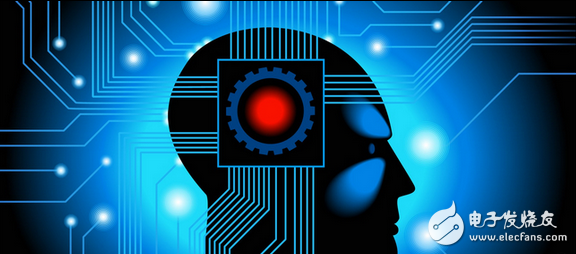Can brainwave sensing technology really determine the ultimate form of VR?
With the rapid development of VR, virtual reality technology is no longer just a concept. The high-tech of virtual reality is gradually coming out. For example, the well-known big friends released the mobile VR spatial positioning technology, and scientists have created Virtual technology can be used for cross-object replication, and high-tech like this is constantly emerging.
According to the latest news, a company called openbci's open source brainwave research and application has applied brainwave sensing technology to virtual reality technology. Then this high-tech is used for what to do, the author will take everyone first. Take a look, when the experiencer brings a VR device, whether you see it or what you hear, just attract your attention, your alert level, your cognitive load and frustration, and different emotions. The differences between the states can be detected one by one.

When this high-tech technology is developed, our life will become more colorful in the future. For example, people who are thinking at any time in their minds will be perceived. It is more exciting than playing games such as real-life adventures. I think if this technology is used to test whether crime is lying, then will it? It is more convenient for the police to solve the case in time, and the police can also confirm the crime through brain fingerprint technology. However, this technology, while bringing convenience to people, also involves the issue of moral theory and personal privacy.
When the experiencer wears a VR device, compared to the EEG signal, the micro-expression of the face of the experiencer, the degree of bite of the teeth, the focus of the glasses, etc., these extracorporeal signals will be more intuitive and timely, but the EEG signal appears to be more Really, in addition, each person's computer signal is unique and represents a symbol of his own identity. When the experiencer uses it, the brainwave signal can reflect people's thoughts in time, which involves a privacy issue. If brainwave application developers develop, they should develop their ethics theory and personal privacy as an important consideration.
Brainwave sensing technology in VR
Although science and technology have been improving, the human brain is still hidden behind the mystery. In a paper published at the University of Memphis, it was explored whether brainwave devices can meaningfully and accurately identify the wearer's mental state, indicating that if brainwaves are incorporated into virtual reality devices, they will have a large medical or health perspective. The application possibilities, but also have special value in the entertainment field.
Kite & LighTIng co-founder Cory Strassburger said: "Our understanding of the brain is 50 years behind the understanding of other organs in the human body. The mystery of this treasure has just been set a corner, virtual reality technology in this field The research and teaching aspects are very helpful."
Sandeep Gupta of GE's Global Research Division said: "Virtual reality can show people the complexity of brain structure very directly. What's even better is that users can interact with the environment. Multi-dimensional neuroimaging data will make them open their mouths. Meanwhile, Professionals such as neurologists can also benefit from the fact that they can walk into the patient's brain and perform an all-round observation of the injured tissue to assess the possible impact of the surgery. The biggest and most direct contribution of this technique may be the development of neuroscientists. The advantages brought by the aspect." Openbci founder conor russomanno said at the neurogaming conference that he believes that once the neural detection device is added to the vr helmet, the advancement of virtual reality technology will be a qualitative leap.
How to achieve?
At present, openbci and other neurological devices are not compatible with the vr helmets on the market, and there are also companies that develop exclusive vr helmets like mindmaze. But in a sense, this kind of technology needs to wait for a while to spread to VR devices. Although the high-tech technology of the brain wave seems to be tall, it seems that it can be applied to any field. In fact, more applications in this field of technology are based on medical and education. At present, brain wave collection takes a long time and varies in length, resulting in relatively low reliability.
It also relies on multiple different types of neuronal responses in the brain, such as location cells, grid cells, and border cells. In the real world, navigation relies on the integration of multiple sensory inputs, such as vision, smell, touch, and vestibule, which have a coordinated relationship with each other. In the virtual world, it is difficult to set the dependencies between different sensory inputs, and thus lose some important information.
For example, in a virtual scene, we can ignore other sensory inputs and analyze the impact of a particular input on the relevant neuron responses in a targeted manner. However, in the real world, those ignored inputs will also participate in that particular pair of inputs. In the regulation of neurons, this leads to a deviation between the virtual experiment and the actual experimental results. These problems have yet to come out of the researcher's solution. It is relatively easy to verify the results in the virtual scene in real experiments, but it is more difficult to verify the results in real experiments in the virtual world. However, I believe that with the neuroscientists Keep working hard, it will become more sophisticated and more popular, let us wait and see.
Mobile Phone Dust Screen,Mobile Phone Matching Products,Computer Mobile Phone Matching Products
SHAOXING HUALI ELECTRONICS CO., LTD. , https://www.cnsxhuali.com